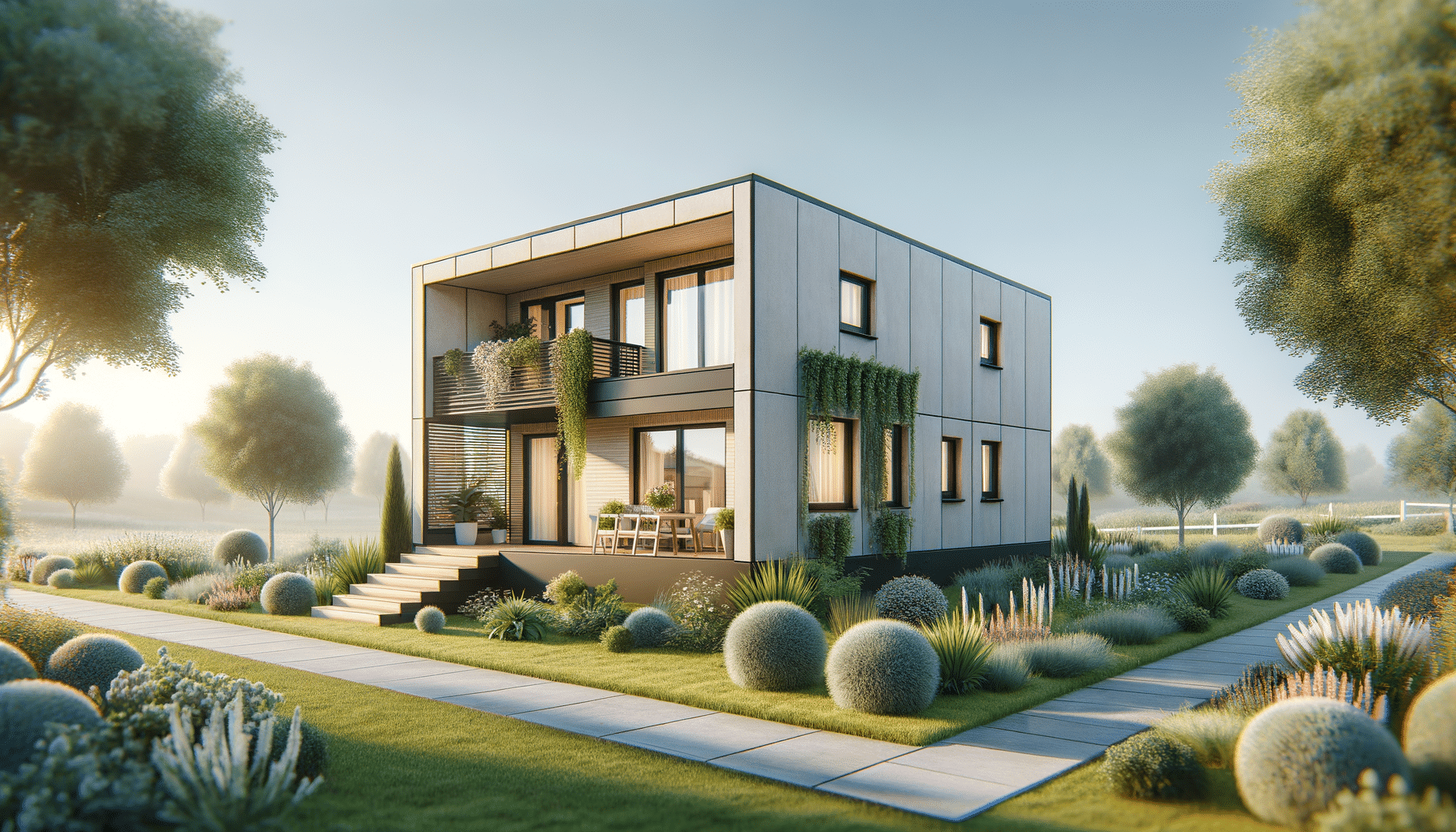
Exploring Prefabricated Modular Homes: A Modern Housing Solution
Introduction to Prefabricated Modular Homes
Prefabricated modular homes have gained significant traction in the modern housing market due to their efficiency, cost-effectiveness, and sustainability. As urbanization continues to rise, the demand for quick and reliable housing solutions becomes more pressing. Prefabricated modular homes offer a compelling solution by providing customizable and high-quality living spaces that can be constructed in a fraction of the time compared to traditional homes.
These homes are built off-site in a factory setting, ensuring precision and quality control, then transported to the desired location for assembly. This method not only reduces construction time but also minimizes waste and environmental impact, making it an attractive option for environmentally conscious buyers. As we delve deeper into the world of prefabricated modular homes, we will explore their benefits, design flexibility, and how they are redefining the future of housing.
Benefits of Prefabricated Modular Homes
Prefabricated modular homes offer a myriad of benefits that appeal to a wide range of homeowners. One of the most significant advantages is the reduced construction time. Since the modules are manufactured in a controlled environment, weather-related delays are virtually eliminated, allowing for quicker completion times. This is particularly beneficial for those who need to move into their new homes swiftly.
Another advantage is cost-effectiveness. The streamlined manufacturing process and bulk purchasing of materials reduce overall costs, making modular homes an affordable alternative to traditional housing. Additionally, the controlled factory environment ensures higher quality construction with fewer defects, leading to lower maintenance costs in the long run.
Environmental sustainability is also a key benefit. Modular homes are designed to be energy-efficient, often incorporating sustainable materials and technologies. The precise manufacturing process reduces waste, and the homes are typically built to meet or exceed energy codes, resulting in lower utility bills for homeowners.
Design Flexibility and Customization
One of the most appealing aspects of prefabricated modular homes is the design flexibility they offer. Homeowners can choose from a wide array of floor plans and styles, allowing them to create a living space that suits their personal tastes and lifestyle needs. Whether you prefer a modern, minimalist design or a more traditional aesthetic, modular homes can be customized to reflect your vision.
The modular nature of these homes means that they can be easily expanded or reconfigured as needs change. This adaptability is particularly advantageous for growing families or those who anticipate changes in their living situation. Moreover, the use of advanced technology in the design process allows for precise customization, ensuring that every detail meets the homeowner’s specifications.
With the ability to incorporate various architectural features and finishes, modular homes offer a level of personalization that rivals traditional construction. This makes them an attractive option for those seeking a unique and tailored living environment.
Construction Process and Quality Assurance
The construction process of prefabricated modular homes is a testament to precision engineering and quality assurance. The modules are built in a factory setting, where skilled workers use advanced tools and technologies to ensure each component meets strict quality standards. This controlled environment allows for meticulous attention to detail, resulting in homes that are structurally sound and built to last.
Once the modules are completed, they are transported to the building site, where they are assembled on a pre-prepared foundation. This assembly process is typically faster than traditional construction, as the modules are designed to fit together seamlessly. The final steps involve connecting utilities and making any necessary adjustments to ensure the home is ready for occupancy.
Quality assurance is a top priority throughout the entire process. Each module undergoes rigorous inspections to ensure compliance with building codes and standards. This commitment to quality not only provides peace of mind to homeowners but also contributes to the longevity and durability of the home.
The Future of Prefabricated Modular Homes
As the housing market continues to evolve, prefabricated modular homes are poised to play an increasingly important role in meeting the demand for sustainable and affordable housing. Advances in technology and materials are continually enhancing the capabilities of modular construction, allowing for even greater customization and efficiency.
The growing awareness of environmental issues and the need for sustainable living solutions have further propelled the popularity of modular homes. Their energy-efficient designs and reduced environmental impact align with the values of eco-conscious consumers, making them a preferred choice for the future.
Moreover, the adaptability of modular homes makes them suitable for a variety of applications, from single-family residences to multi-unit developments. As urban areas continue to expand, modular construction offers a viable solution for creating high-quality housing quickly and efficiently. With their numerous benefits and potential for innovation, prefabricated modular homes are set to redefine the landscape of modern housing.


